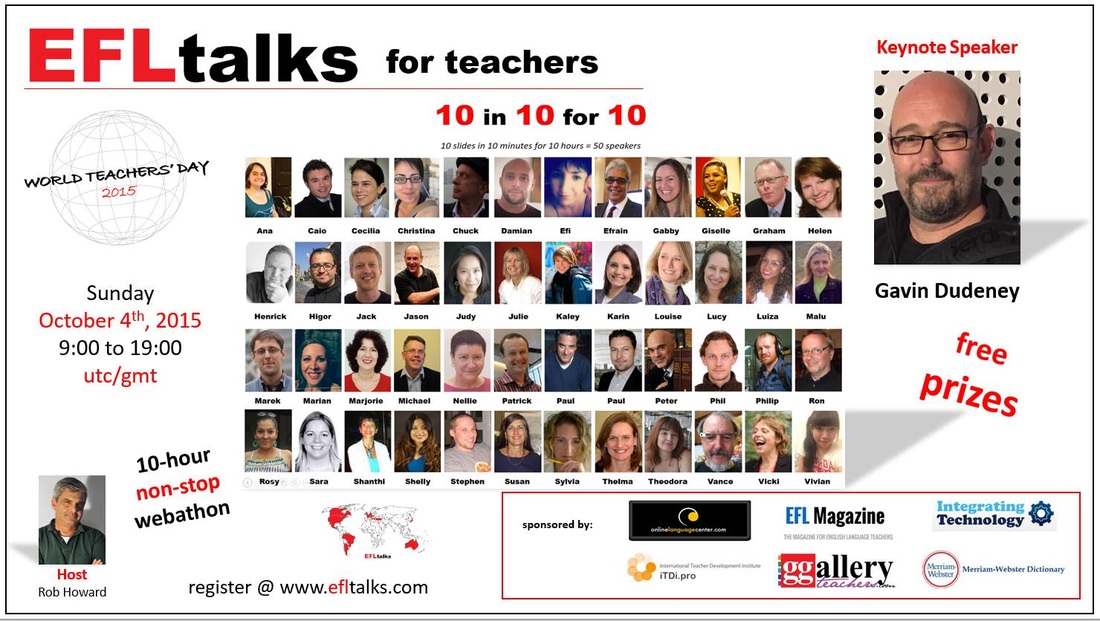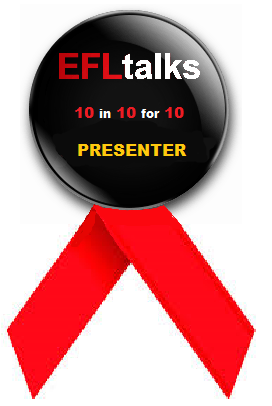|
Homework correction is always a boring activity: - a chore for teachers at home which is of little benefit to students who will quickly look at the red annotations before putting it in their bag, mistakes forgotten in a few minutes; - a bore for students if done in class: one student reads the answers while the others daydream and rarely pay attention. So how to maximise the benefits of learning from one's mistakes? For years I have been implementing correcting together on a 1-1 basis, having the student read aloud and making him note that there's a mistake but not telling him what it is, so he has to reflect and possibly discover the mistake for himself. This has a dual effect: practicing speaking by reading aloud and actively noticing mistakes so that they remain embedded in the student's memory rather that just a fleeting correction ready to be forgotten. Implementing this in the larger context of a class is also possible. In pairs the students swap their homework exercises and take turns in reading them to each other out loud. If they notice a mistake, they say so, show it to their partner and make the correction. In this manner they are again practising their speaking, paying attention to mistakes (usually easier to find in other people's work) and learning from this observation and correction. Finally, everyone is concentrated and engaged, nobody is daydreaming and everyone is focussed, thus maximising the benefits of lesson time. The teacher goes around monitoring the pronunciation and corrections. Even though the teacher cannot be omnipresent, you will certainly have noticed that when a student makes a mistake out loud on the other side of the classroom, somehow you hear it because it irritates you. My students are always amazed that I catch out their mistakes when apparently I'm listening to others across the classroom. Try it out - it's good for speaking, grammar and an engaged class! Beneficial to all including the teacher, who has more lesson preparation time and less correction time available. Let me know in the comments how you get along with this. Follow these tips and enjoy helping people learn English easily!!
Your English fluency teacher, Susan
0 Comments
My personal experience...So many students complain that they'd like to practice their English but they don't have enough time. Other high-performing businessmen and athletes manage to squeeze in a lot of activities into one day. What's their secret? How do you spend your commuting time? Is your commuting time WASTED time or GAINED time? When my son was only three years old I chose to send my children to a very good school which was about half an hour's drive from where we lived. Now many people I know criticized that choice, saying that we would have been wasting our time two hours a day because it was a 30-minute drive one way and that was only one of the many disadvantages. In reality it turned out to be gained time because, on the two laps with my children in the car, going to and returning from school, when they were young, we sang songs, spoke to each other, told each other stories, practiced various languages and as they grew we also did spelling as well as times tables but what was most important is that we spoke to each other about our concerns, our worries and in particular, any questions about life they had we discussed: the existence or not of Father Christmas, human reproduction, smoking, drugs and all things which were concerning them as they grew up. In that commuting time I managed to also teach them what I thought were the values of life so we built a really deep relationship through commuting and talking together - we were strapped in the car, we couldn't escape from each other and we really got to know each other; I got to trust them and they got to trust me. It bonded our relationship and I know that if we hadn't had this commuting time we wouldn't have built such a strong relationship because I would have done my own thing in the house, with all my household duties, whilst they would have gone to play and it wouldn't have been such an opportunity - so if you use this commuting time wisely, it is only gained time. Not only was it quality time when we were together, but on the journeys where I was alone, on the way to pick the children up or coming back from having dropped them off, I used the time to discover the joys of audiobooks. I had really never used audiobooks and that's when I started discovering how exciting they are! Then I started learning Spanish and realized the advantages of language learning in the car, so for me commuting does not only have the disadvantage of the hassle - sometimes I'm stuck in a queue - commuting isn't only something negative, it's something positive. So that's why you, who I'm sure are very busy, as I always have been, can take advantage for your language learning too because you can listen to podcasts, you can sing songs in English, you can listen to various audio books in the language you're studying and take advantage of audio courses where you listen, where you repeat and even if you don't want to do any of that, you can just talk to yourself in the language you're studying - for most of you that'll be English: talking to yourself will help your jaw get used to forming the words in the language you want to become fluent in and, best of all, nobody can laugh at your mistakes! As a result you'll feel very confident and the more you talk to yourself in this language, even if you're making mistakes, it doesn't matter, you improve your fluency. That's why I think that taking advantage of commuting time means that when you get home you've done your daily dose of teaching yourself a language or practicing it and then when you're home you can dedicate your time to relaxing, doing sports, spending time with your family and that's very important, to have the feeling that you've done something for yourself, without stealing time from the things that you love, which are not necessarily language learning. This is why I've developed this course where you can, while you're in the car, listen, repeat and practice your fluency, practice your listening comprehension and practice your grammar because the exercises, over the weeks, gradually revise the grammar from easy to difficult including phrasal verbs and typical expressions. These are all things that you can do, in particular, in the car whilst you're commuting - I recommend you don't just use the time for listening to music and chatting to your friends on the phone but actually as a kind of training for yourself. Now take advantage of it, see the positive side of it! I teach a lot of doctors; I teach a lot of people who are really, really busy and don't have much time but do commute. These courses are especially useful for people who have a very busy schedule so if you think that you'd be interested, download these courses I developed especially for you busy people - try them out. It's only ten minutes a day every day and you can listen, repeat and practice all your skills - the only skill that isn't really contemplated is writing but that you can practice in the comments box here below. This course was actually conceived for listening and repeating; so download it - the first week is absolutely free – if you find it's useful then you can go on my website and check out if you want to buy one or more weeks of the subsequent course. Turn commuting time into GAINED TIME and enrich your life! I hope you found these tips useful, your fluency guide, Susan P.S. Check out my podcasts to download & listen to whilst commuting if you have no time to watch my videos! THE HISTOMAP is the first historical map I have found which presents 4000 years of history and the relationships between populations at a glance! Below are just a few ideas, vocabulary and expressions to ask questions with: - Prepare questions using: How long...? Which... ? When... ? Where... ? Who... ? etc. - Comparisons. ' - more powerful than - the most powerful - as... as - New vocabulary, verbs, passive tense and collocations: - conquered (by) - reign lasted - were in power for - lasted - weak / strong - great - destroyed (by) - short-lived - long-lived - Western / Eastern world - Middle-East - developed - grew - maintained - people vs population You can download THE HISTOMAP below. I found it freely downloadable in Internet .. Hope you find some stimulating questions to ask with it! Susan If you have NO TIME to STUDY but want to improve your English in 10 minutes a day, while you are DRIVING TO WORK or MAKING DINNER, check out LEARN ENGLISH NATURALLY with GUIDED FLUENCY & LISTENING PRACTICE ONLY 10 minutes a day take you a very long way… http://bilingual-communications.weebly.com/store/c1/Featured_Products.html Also check out MY PLAYLIST for more of Susan's ESL Learning Videos (Chants & Songs) https://www.youtube.com/playlist?list=PLrvV_PywFOlxgfR5RpMw7rLsI6ai3yHai
Songs always bring a breath of fresh air into the SONGS in the classroom: GRAMMAR GALORE – intermediate / advanced / teens / adults lassroom and are greeted with joy. I usually try to choose songs, which are not only clear and fairly easy to understand but have meaningful content for language learners such as grammar, phrasal verbs or vocabulary pertinent to what we are studying. A wonderful song full of all kinds of grammar and expressions that is for intermediate / advanced students is HOLLYWOOD – Michael Buble. The catchy tune is fun to listen and sing along to whilst the rich assortment of language leads to all kinds of possible adaptations for practice – some of which I have suggested at the end of the document to download. You can download the worksheets to the song below. Feel free to delete or translate the Italian into another language. Can anyone suggest any other songs for practising grammar revision? Hope you have fun with it! Susan
If you liked this song, check out my playlist for other chants and songs:
YOU TUBE PLAYLIST: Susan's ESL Learning Videos (Chants & Songs) Tricky English Made Easy is a series to help students clarify concepts which are often difficult for learners of English. The use of BRING-TAKE-CARRY / FETCH-GET is problematic for students since, in many cases, the same verb for the different concepts can be used in other languages. CARRY is the easiest of all to explain since it involves TRANSPORTING WITH YOUR ARMS. The other verbs are best explained in the picture above (to download) in which I tried to make an explanatory diagram and in this excellent video by Vicki Hollett Simple English Videos: Come, Go, Bring, Take, Fetch, Get: Learn English with Simple English Videos https://youtu.be/ijuI7T-zpCM You can download the picture below. I hope you find this diagram as useful. Susan
 The PRESENT SIMPLE contrasted with the PRESENT CONTINUOUS can be practiced easily with a fun game of ludo. I find that it is a recurrent problem which needs lots of practice. I usually draw a winding ludo board on the blackboard but you can also project the gameboard I have to download on the IWB or else even print a copy for a group of students to play on. I like to first revise the grammatical differences before dividing the class into two teams and getting them to throw the dice. Each team in turn answers the question according to the number they land on (having previously handed out the photocopied questions to them). If they answer correctly they can stay on the square where they just landed. If they make a mistake they go back to the previous square they were on. The first team to reach the FINISH is obviously the winner. The game is not at all as easy as it seems and sometimes two answers could be possible depending on interpretation. However, due to its challenging nature it is fun as well as being effective. You can download the game below. Hope you have fun with it! Susan P.S. I forgot to mention that because there are only 55 questions but 60 balls on the board, you then restart from the beginning and number 56 is equivalent to question 1, 57 = question 2, 58 = question 3, 59 = question 4 and 60 = question 5. This is to repeat the trickier questions at the beginning which sometimes lead students to give the wrong answer. The blue balls can be used or not - as you please. You could allow those landing on a blue ball to throw the dice again for example.
PLAYING WITH CARDS to FORM SENTENCES makes language learning MUCH MORE FUN and CONSOLIDATES THE STRUCTURES. It's the beginning of the school year and many students are struggling to concentrate after a summer of fun so games like this can get them to FOCUS ON GRAMMAR and interiorize it whilst HAVING FUN! It takes a little preparation but you can also try getting students to help out with the cutting and sorting into categories - they seem to enjoy it whilst practising new vocabulary such as 'cut it out', 'put it over there', 'put it on that pile'. You can download the cards below. Let me know how you get along with it! Hope you have fun with it! Susan
My daughter Laura, sixteen years old, has proven the STRENGTH OF MOTIVATION to me: dire hard work and WILLPOWER almost beyond her limits has brought her to the EUROPEAN SPEEDSKATING CHAMPIONSHIPS as well as passing her very demanding school year with flying colours. Here I sit in my camper in Austria at the start of the venue, not worried about what the outcome will be, but reflecting on the arduous road that led us here - sheer motivation and willpower. She is not one of those talents to whom everything falls easy, she has worked hard against all odds to reach her two goals in sports and education.
This has given me a new insight to learning as I tend to believe that curiosity and enjoyment are the best stimuli for learning and retaining what one learns. Motivation is certainly another fundamental ingredient but I feel that for most people it is difficult to find the willpower to do something they don't at least partially enjoy, despite the hard work it may comprise. So I utterly admire those who find the willpower to carry on doing something that may not give them the desired results - or at least not immediately. Motivating students is therefore one of my top priorities: arousing their curiosity and making it as enjoyable as possible so that they want to carry on learning outside the classroom, using various methods, media, adjustments to their social networks and corresponding with foreigners as well as travelling whenever possible. That is where technology inside and outside the classroom as well as games make learning much more effective and exciting than it used to be. My holiday homework always comprises at least DAILY: WATCHING VIDEOS: - VOSCREEN - 5 seconds listening (as many times as you like) to bits of films, cartoons, ads... before pressing the button which reveals the subtitle in English - to see if you're right!! = 5 minutes a day http://www.voscreen.com/game/682/ehjcj5hfhb9bdvr/it/ - ORORO.TV – TV series & films with subtitles = 5 - 45 minutes a day (depending on your level) - http://ororo.tv/en/ - LyricsTraining - SONGS (LISTENING & COMPLETING): http://lyricstraining.com LyricsTraining is an easy and fun way to learn and improve your foreign languages skills, through the music videos and the lyrics of your favourite songs. LyricsTraining also has a special Karaoke mode that lets you sing and enjoy the full lyrics = as often as is fun GAMES to practise your English: - ESL Fun Games Online http://www.eslgamesworld.com/members/games/index.html - ESL Revision Fun Games Online - http://www.eslgamesworld.com/Revision/Revision_Games.html READING: http://news.bbc.co.uk/cbbcnews/ - ONLINE ENGLISH NEWSPAPER for English kids aged 8 -14 so simplified information LEARNING: MINDMAPLE - super-easy mind mapping tool for writing up phrases, collocations and vocabulary in context. plus: - putting Mobile phone settings in English - putting Facebook (& other social network) settings in English - putting computer settings in English - and generally SURROUNDING YOURSELF WITH ENGLISH so your brain switches into English mode. Update on the venue of the EUROPEAN SPEEDSKATING CHAMPIONSHIPS: Day 1: my daughter Laura helps her teammate make it to the gold medal; Day 2: she gets pulled down by another competitor onto the asphalt at 40 km/hr, jumps up to continue the race with her teammate (also involved in the multiple fall) when blood streams copiously into her eye: 3 stitches, a black eye, bruised shoulder and various scrapes; luckily her seriously bruised teammate still makes the gold medal! Day 5: still not allowed to race (doctor's orders); Day 6: despite a huge plaster covering half her eye she races her 10,000 metre points race to win a GOLD MEDAL and become EUROPEAN CHAMPION of her category in that particular race. Driven by sheer MOTIVATION and DETERMINATION - "Where there's a will there's a way!" - something to instil in our students!! DO / DOES: INTENSE 3rd PERSON PRACTICE in the Simple Present – a fun game in an engaging context19/6/2015 Despite exam time and last minute end of year activities there are those who are already planning ahead for the new school year and others thinking of summer camp activities to do with their English language students. Even many of my better students have not all grasped using the 's' in the 3rd person singular despite knowing the rule - as always, it has to be practised so that it becomes natural. The following game does just that:
It’s the TV SURVEY PART 1: Setting up the game 1. Tell the students to copy the table you will draw on the board onto a piece of paper turned horizontally. (See template to download.) 2. In the first column write the CATEGORY of a TV programme: e.g. CARTOONS 3. In the second column write the NAME of a TV programme: e.g. Tom & Jerry (they can write their own favourite programme here). 4. Ask a student: Do you like .....CARTOONS....? 5. Boy: Yes, I do. / No, I don't. (depending on his preference) 6. Teacher asks another student whilst indicating the first student: Does he like .....CARTOONS....? 7. Student: Yes, he does. / No, he doesn't. (depending on his preference) 8. Now write the next CATEGORY of a TV programme: e.g. DOCUMENTARIES 9. In the second column write the NAME of a TV programme: e.g. NATIONAL GEOGRAPHIC (they can write their own favourite programme here). 10. Ask a student: Do you like .....DOCUMENTARIES....? 11. Girl: Yes, I do. / No, I don't. (depending on her preference) 12. Teacher asks another student whilst indicating the first student: Does she like .....CARTOONS....? 13. Student: Yes, she does. / No, she doesn't. (depending on her preference) 14. This phase of completing the table with all the categories and questions should not be drawn out too long - it's the setting up phase for the actual game. PART 2: INTERVIEWING A FRIEND - Pairwork 1. Each student should interview the classmate next to him & mark, in a third column called FRIEND, a tick or cross depending on the friend's preferences by asking: a. Do you like .....CARTOONS....? b. Classmate: Yes, I do. / No, I don't. (depending on his preference) PART 3: THE ACTUAL GAME - here comes the fun part! 1. The class is divided into teams A & B. 2. One team member has 30 seconds to speak about his partner by looking at the ticks & crosses in front of him. 3. He says: She likes... / She doesn't like... as quickly as possible & gains one point for each correctly pronounced sentence. a. The teacher silently counts the points as the student speaks, making sure not to count any such as 'He like...' or 'He don't likes...', which inevitably slip in. 4. The teams take turns until the end of the lesson when the winning team is announced. 5. The aim of this final activity is to give the students intensive practise in pronouncing the third person at speed so as to fix it in their minds, loosen the muscles in their mouths and help it to become second nature. Hope you have fun with it! Susan Noughts & Crosses as another of my favourite end of lesson REVISION GAMES had already been planned for this post when I realised that tekhnologic had just been awarded the BRITISH COUNCIL TEACHING ENGLISH Featured blog of the month for April 2015 for a very similar game dedicated to students who are at a much higher level. A great idea I had never thought of and will certainly implement!
I tend to use this game for elementary to pre-intermediate levels to REVISE FORMULATING QUESTIONS (which is forever tricky) and IRREGULAR VERBS. I divide the class into two teams. As can be seen in the photo, I put verbs in the base form and they have to formulate sentences using the verbs in the simple past and spelling them to me correctly to be allowed to place a nought or cross in their square. Alternatively I put irregular verbs in their past form and ask them to formulate questions for the other team with them. For elementary students I put verbs in the present tense and also suggest a pronoun in order to have some questions asked or sentences formulated in the third person. Noughts & Crosses is a very versatile no-preparation revision game, which is particularly fun and useful towards the end of the year when students are getting tired and teachers want to verify how much they have retained. It can be a warmer, a filler or even a complete lesson I discovered. That is the power of Noughts & Crosses! Can anyone suggest any other simple REVISION ACTIVITIES? Hope you have fun with it! Susan
By the far the best and most versatile grammar revision game I have ever used is probably not new to many of you, but while many ‘tried and tested’ games I have borrowed from others have not always had the desired results, this one has had a 98% success rate* in my classes of all ages from children to adults. NO PREPARATION is required, which for my extensive range of teaching (toddlers to adults – I know it’s crazy but I love the variety it brings in teaching methods despite the heavy preparation workload) is very welcome, but it is a MOST EFFECTIVE, HIGHLY FOCUSED form of FUN GRAMMAR REVISION.
It’s the GRAMMAR AUCTION 1. Divide the class into groups of 2 – 3 students. 2. Write a column on the board listing the GROUPS and next to it a column assigning each of them a BUDGET of 1000 Euro. 3.Two more columns are for POINTS and C.P. (Correction Points) 4. Explain that the objective is spending money to buy correct sentences and thus win a point. The group with the most points wins at the end of the lesson or time allocated to it. 5. Minimum bid is 50 euro, then 100, 150, 200, 250 to a max bid of 300 euro. They are not allowed to jump to a higher sum without having bid the previous sum (no 300 euro directly!!). THEY MUST SAY THE SUM OF THE BID THEMSELVES (you would be surprised and how much difficulty some students have in saying these numbers!). 6. Write a sentence on the board, have them bid and then write the remaining budget next to the group that bought the sentence. 7. Now ask, “Did they spend their money well or badly?” 8. Those who reply “badly” should motivate the mistake they see and try to correct it. If they do they get a correction point. If the sentence is correct the group that bought the sentence eventually gets their point. 9. I like to make the “simmer” before letting them know if the sentence is right or wrong so they end up making lots of hypotheses even when the sentence is right. 10. If the group that bought it suddenly realises there is a mistake I give them first option to correct it. 11.*The only time it gets out of hand is when the students bid just for the sake of it without even reading the sentence and not caring if it’s right or wrong. I’ve very rarely had the situation, in which case the game stops as the objective has been defeated. 12. All in all it’s a very fun game with lots of useful revision without them even noticing it! Hope you have fun with it! Susan
|
Categories
All
Would you like regular English learning & teaching ideas? Subscribe to my blog so you don't miss a post!
AuthorMy name is Susan Brodar, born in London into a multilingual family and brought up bilingual English / Italian. Archives
December 2018
|
||||||||||||||||||||||||||||||||||||||||||||||||||||||||||||

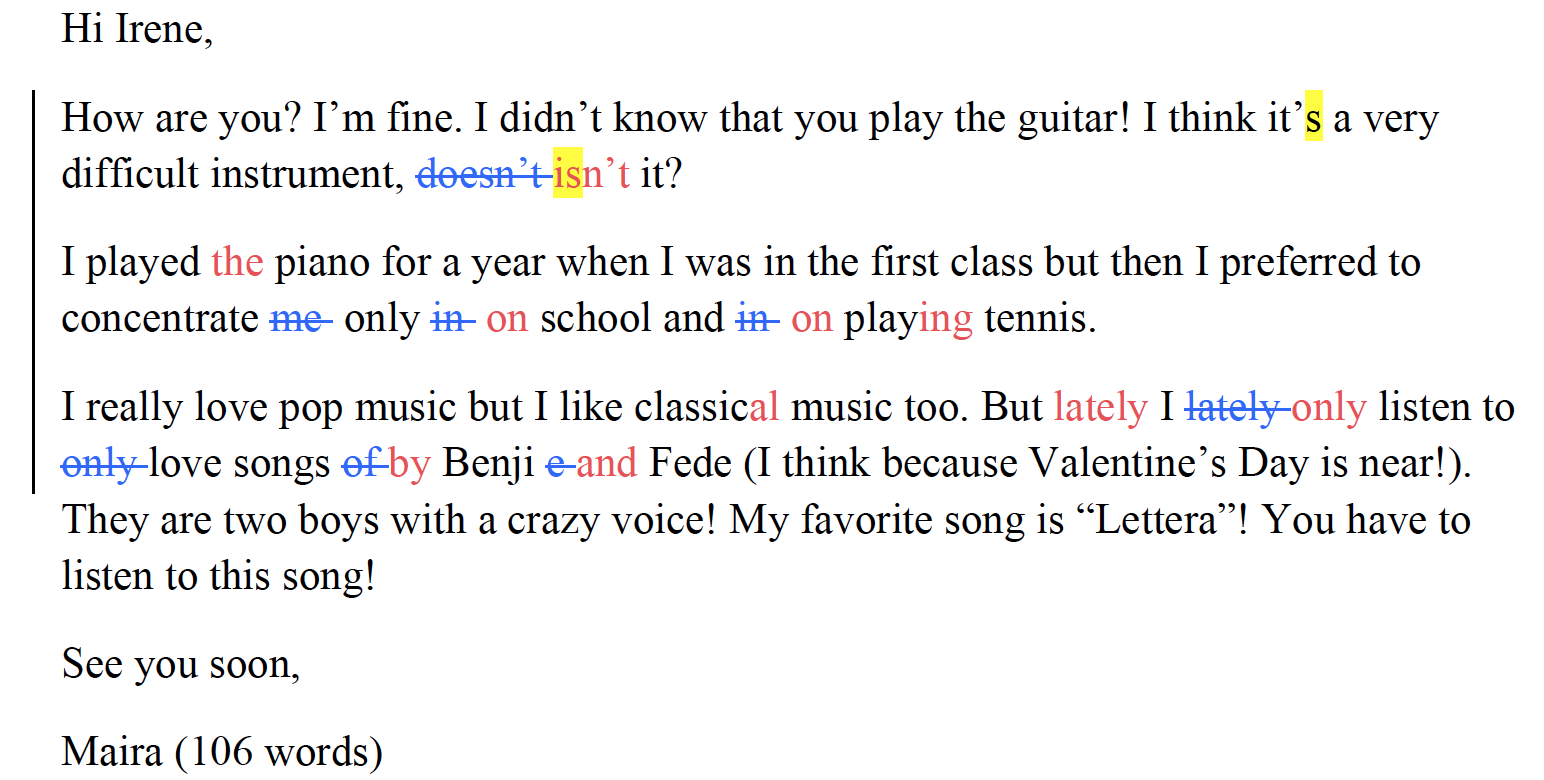
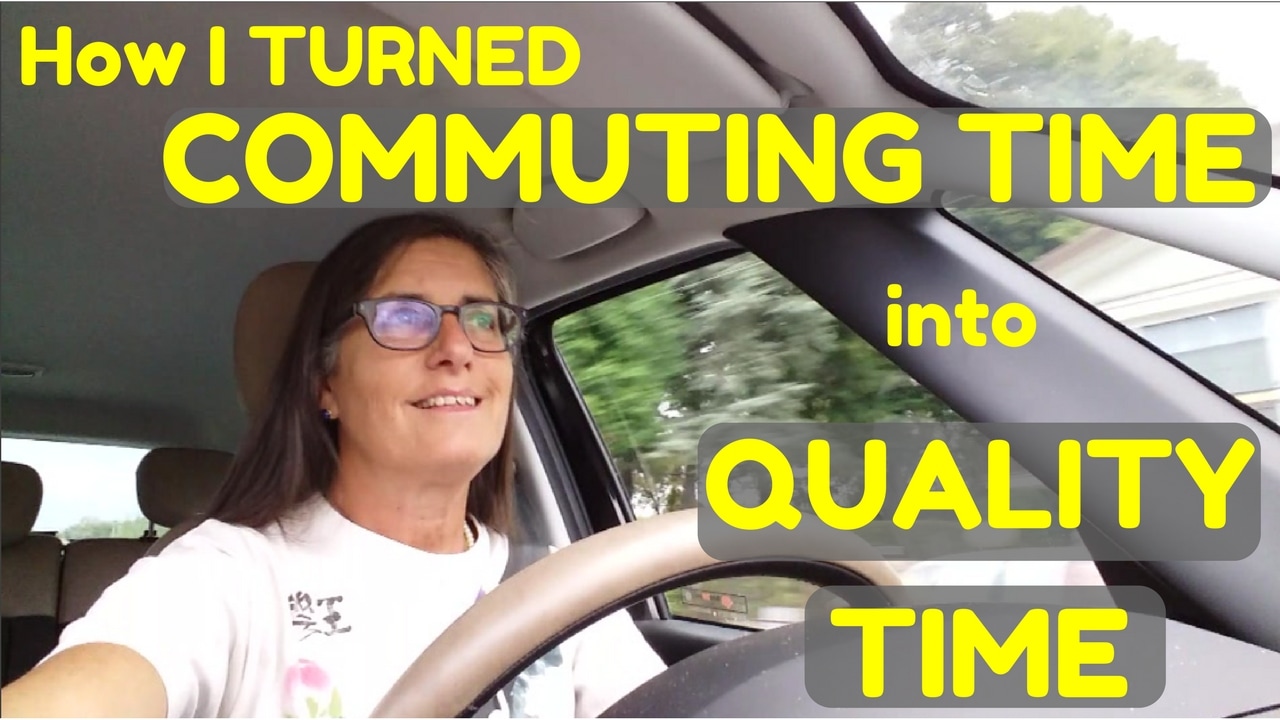
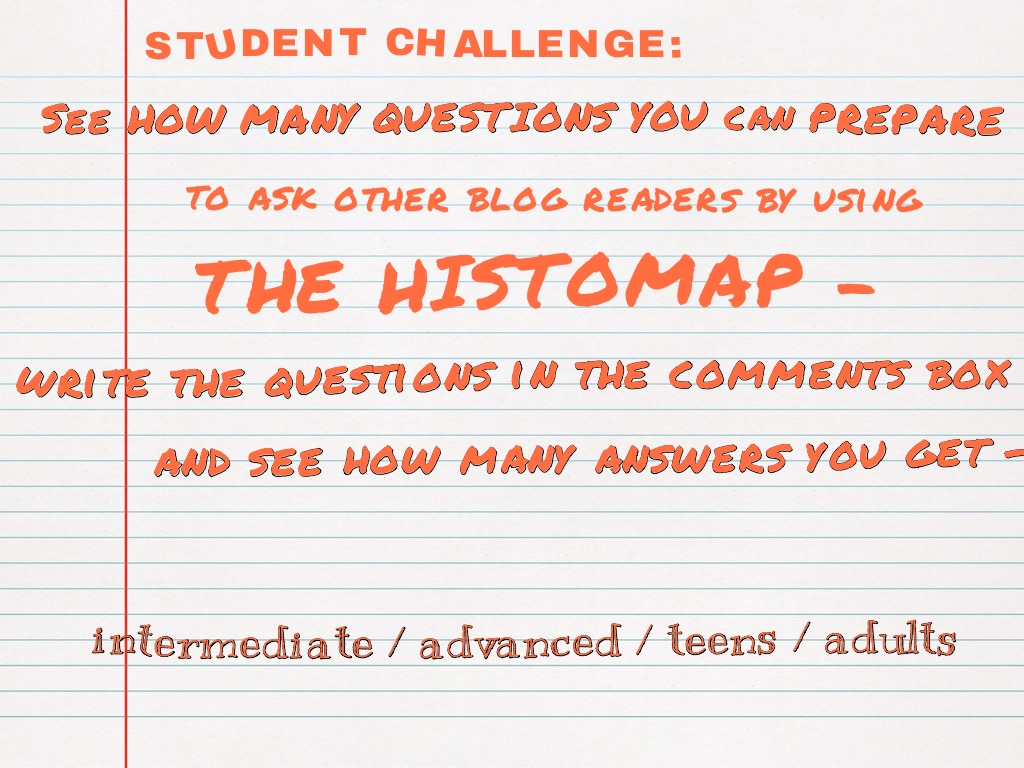
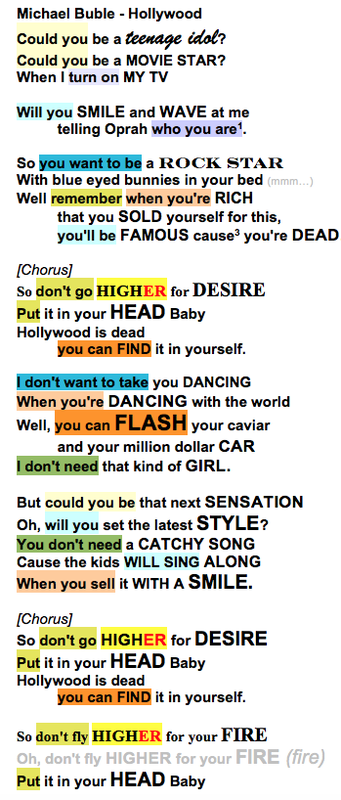
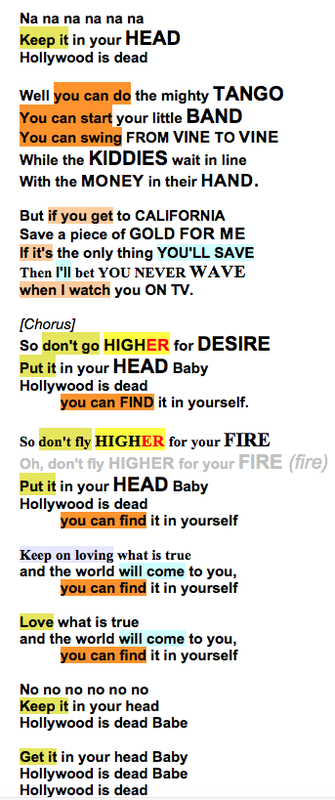
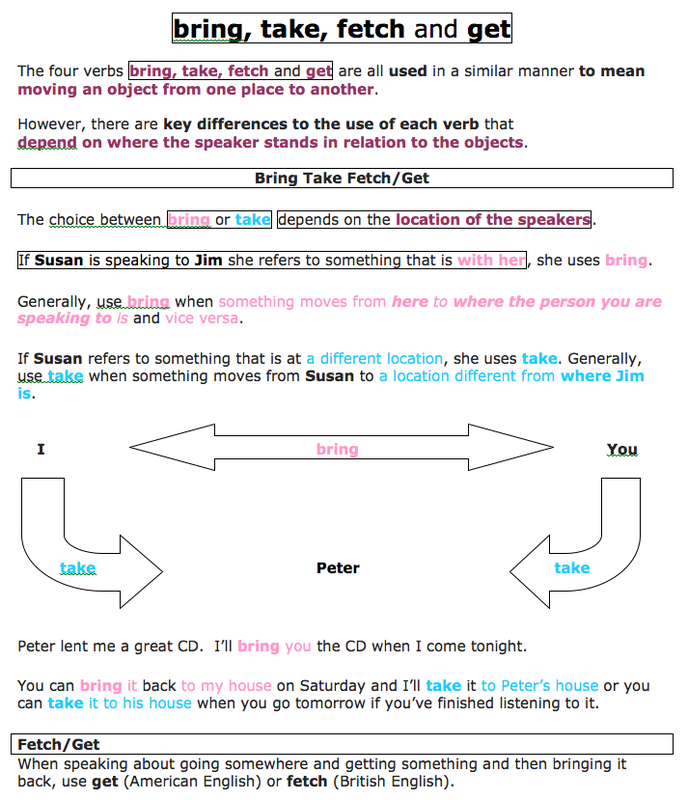
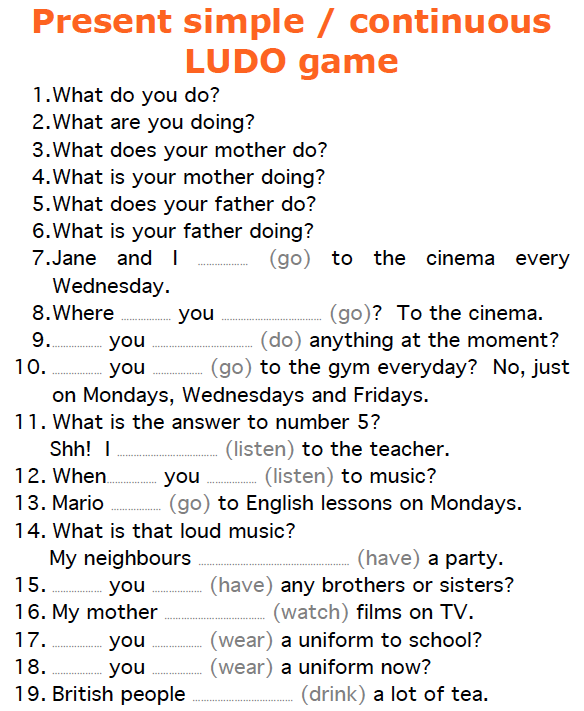
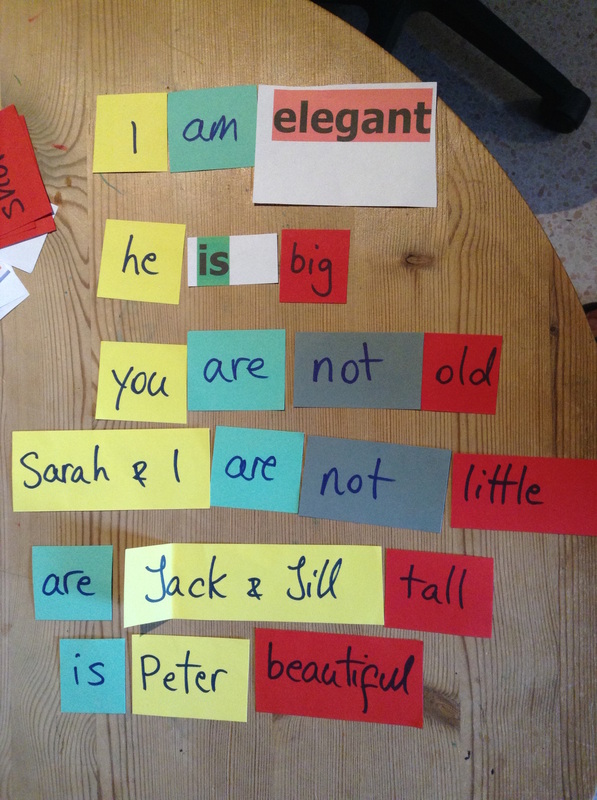
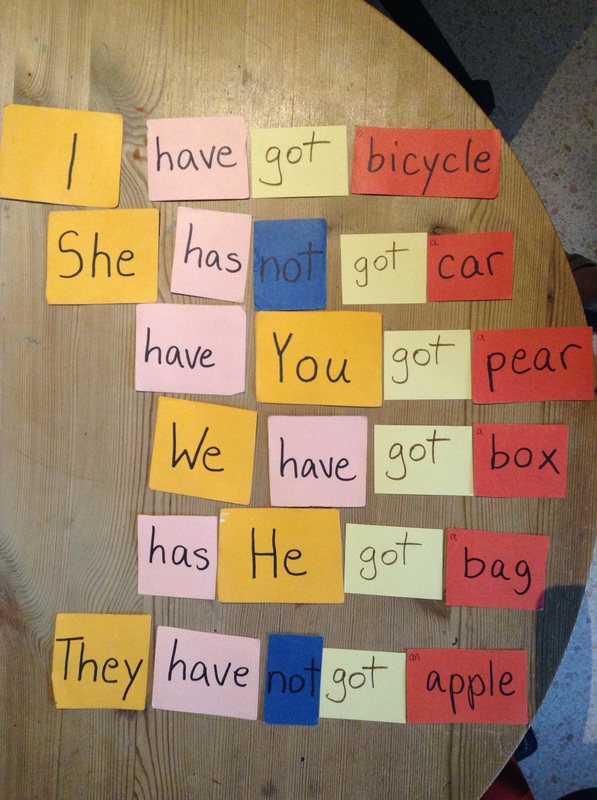
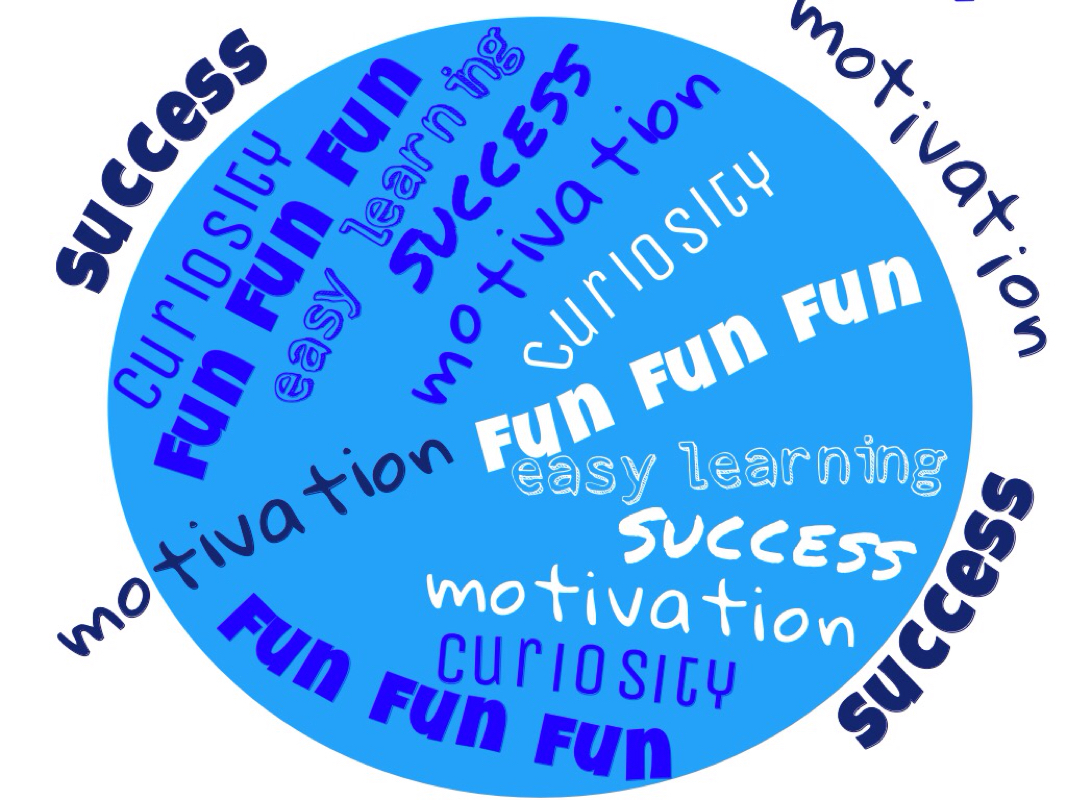




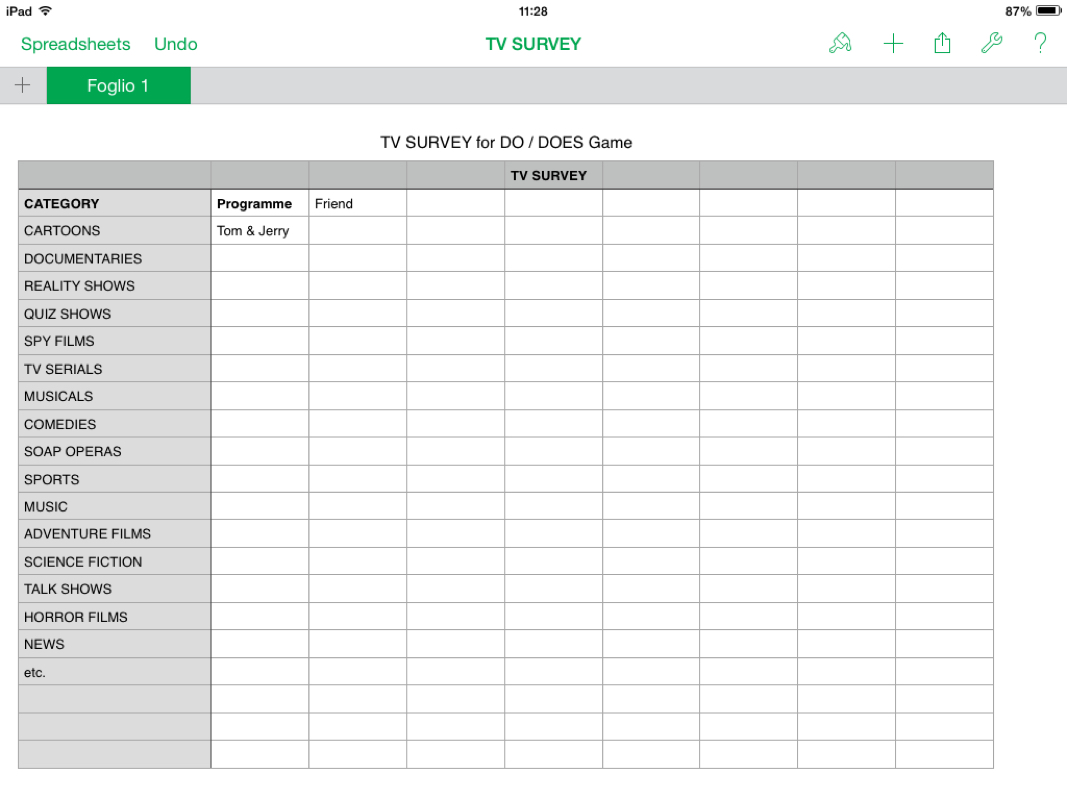
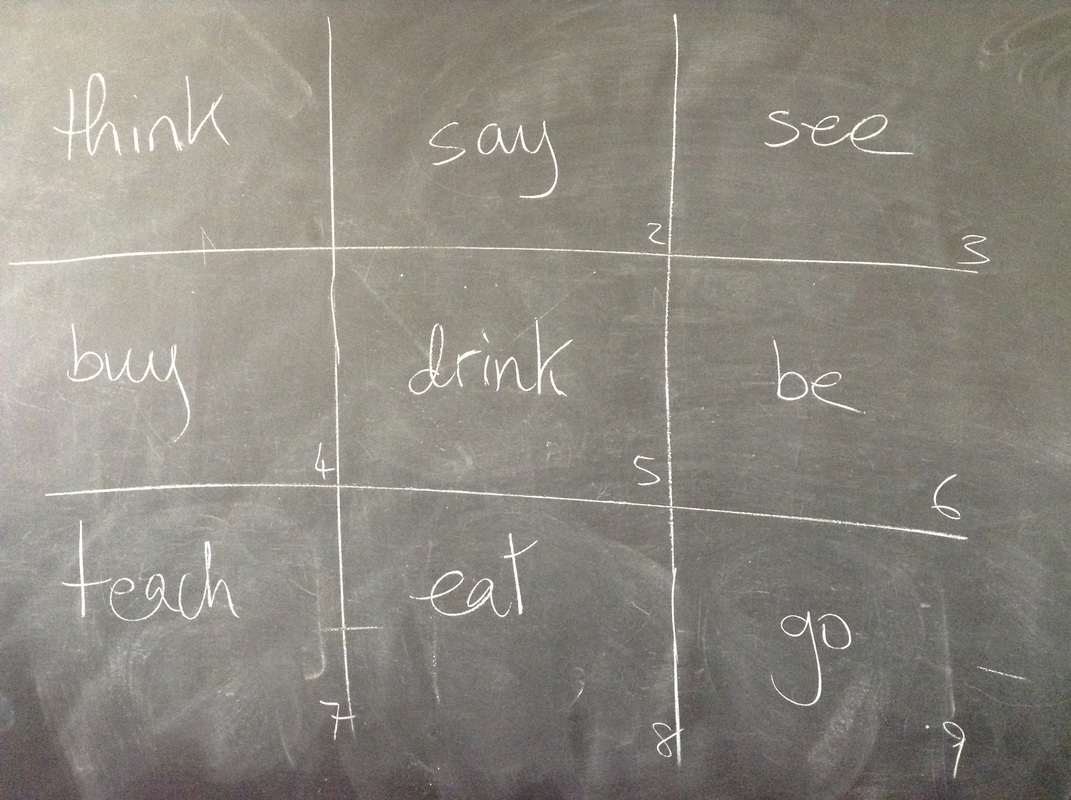

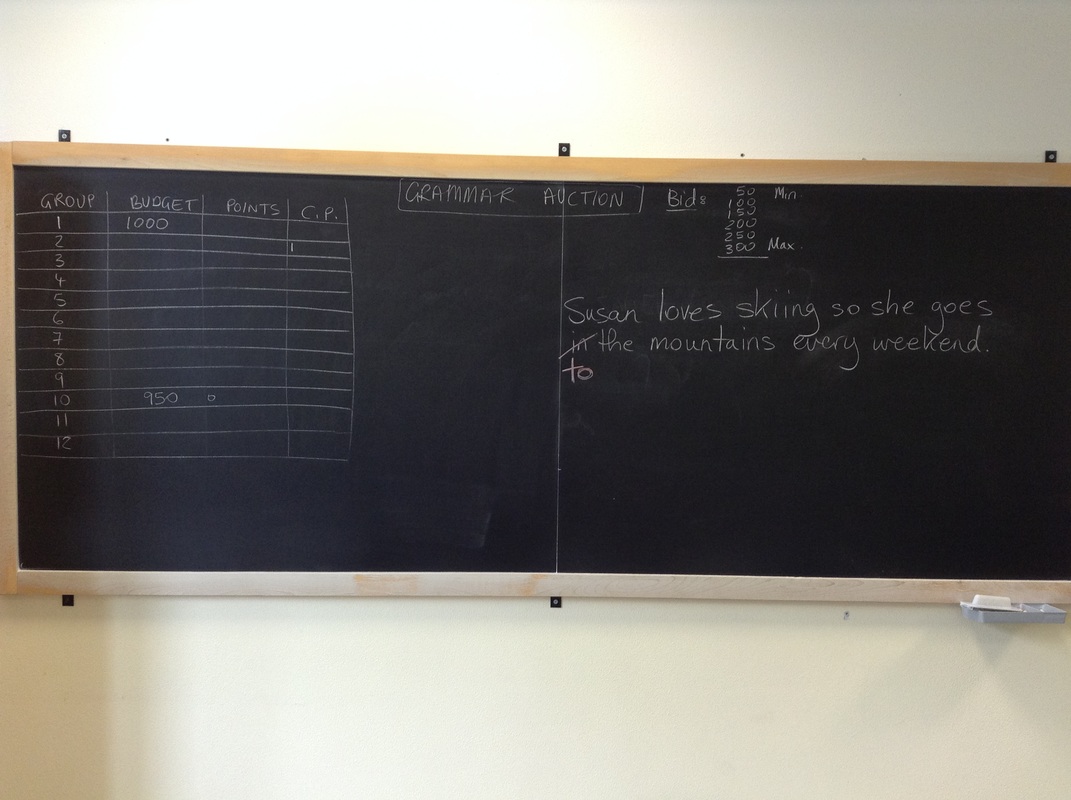



 RSS Feed
RSS Feed
